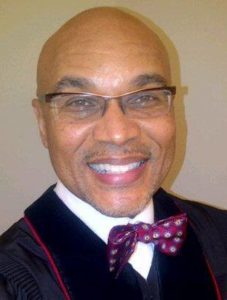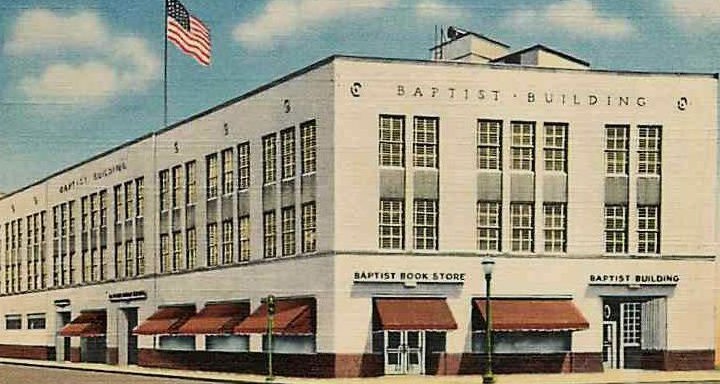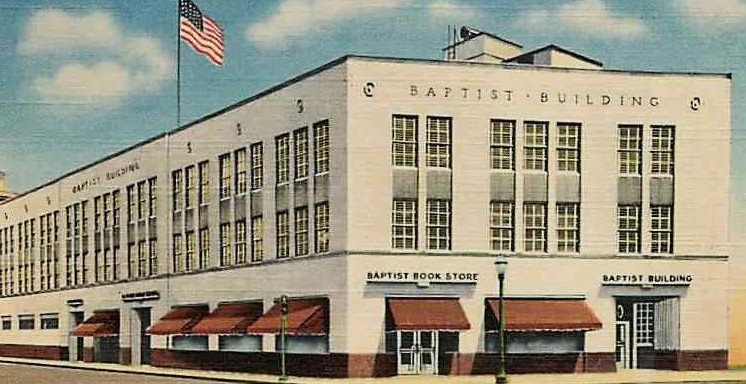In October 1973, I was a first-semester religion major at Bishop College in Dallas, a Black college founded in 1881 by Baptists. Having turned 17 the prior month, I was in awe of the many teenage preachers on the campus. They told me that Dallas’ First Baptist Church was like the Vatican of the Baptist world and that W.A. Criswell was their pope. They told me there was a church bookstore across the street that had the best Bibles one could find.
I already had the mandatory Scofield Reference Bible; I just wanted to have one from First Baptist Church. I took the half-hour bus trip downtown and found an inexpensive Broadman KJV and went to the counter. The young lady asked me to step aside as she helped another person. Gentleman that I was, I gladly complied. She asked me to wait again for another customer, and I did so gladly. And another. And another. I was from Flint, Mich., and figured Southern hospitality dictated that elders were served before youth.

Emil Thomas
When I was finally served, I sensed something was wrong. The clerk’s attitude toward me was not as kind as it was to the others. She didn’t look me in the eye. She didn’t say, “sir.” And there was no one else left in the bookstore but me.
As I took the bus ride back to Bishop, my mind reran every action, every statement, every movement. I felt an acidic feeling in my chest I never had felt before. I had been a victim of racial discrimination — at a Baptist Bookstore. I kept that Bible on my shelf but never used it. After that, Cokesbury became my bookstore of choice.
After college, Bishop preachers scattered to seminaries across the nation, some to Southern Baptist schools like Southwestern and Golden Gate, some to Black seminaries like Virginia Union, ITC and Howard, others like me to Northern schools: I chose Union in New York City and then Princeton.

Advertisement for the Baptist Book Store in downtown Dallas.
Fast forward to 2020. First Baptist continues to hold its stature in the Baptist universe, and Robert Jeffress is now pastor. A state-of-the art ministry with a galactic array of broadcast ministries, books and digital resources, it continues to be a model congregation. Yet today the pastor is a religious surrogate for President Donald Trump, agreeing with his profanity-laced descriptions of African nations, and supporting his re-election bid 100%.
I guess I would consider myself an evangelical. I was born again in 11th grade at a Tom Skinner crusade. I’ve preached on street corners in Downtown Dallas, conducted revivals across America and have led people to Christ in Jamaica, Ghana and South Africa. Across the years I’ve loved to listen to Chuck Swindoll and James Dobson as much as E. V. Hill and E. K. Bailey.
I believed that a convergence of Bible-believing Christians was emerging that would span denomination and ethnicity. But after 50 years of evangelical relationships with white Americans and African Americans, nothing has changed. Nothing substantial, that is.
Southern Baptist institutions have been integrated with Black people. The SBC has had an African American president, and there are some magnificent Black preachers and churches in the SBC. Official statements denouncing racism have been made. But what has really changed?
The recent statement of Southern Baptist Convention seminary presidents denouncing Critical Race Theory as incompatible with Scriptures is a case in point. It was wrong-headed in at least three ways.
“Like geometry, capitalism or psychotherapy, Critical Race Theory is not concerned with the authority of Scripture but with racism.”
It created a false conflict. It suggested that Critical Race Theory denies the authority of Scripture or seeks to supplant the authority of the Scriptures. Like geometry, capitalism or psychotherapy, Critical Race Theory is not concerned with the authority of Scripture but with racism. It must be critiqued by Scripture before 100% of it is dismissed.
It revealed an unwillingness to grapple with the complexity and intractability of racism. Seminaries don’t have to agree with everything Elizabeth Kubler-Ross believes, but her five stages of grief can help future pastors and counselors in biblical counseling. Islam should be studied if missiology is concerned about reaching the entire world for Christ. What tools will Southern Baptists use to understand the persistence of racism in American society, denominations and churches? If Baptists believe the Scriptures hold the solution to the human condition, why shouldn’t SBC scholars and seminarians engage Critical Race Theory through the prism of Scripture as they engage other theories, philosophies and tools of study?
Its timing was terrible. It coincided with a resurgence of racism during the re-election campaign of a president who worked conspicuously to exploit America’s racial divide for personal and political gain. I observed a conversation on social media wherein a young African American minister eliminated Southern Baptist schools from his list of seminary options because of the statement of SBC seminary presidents. He said it was a clear statement that he was not wanted. God forbid that there are other pre-seminarians out there who don’t want an education with people of color — it could signal to them where they can get what they want.
“The only change I have seen among Bible-believing Christians in the last 50 years is a change in branding.”
The only change I have seen among Bible-believing Christians in the last 50 years is a change in branding. The “fundamentalist” brand, once proudly embraced by persons like Pastor Criswell, became associated in the culture with narrow-mindedness, segregation and anti-intellectualism. In the ’70s and beyond, conservative Christians rebranded as “evangelicals” — persons willing to interact with Black people and embrace contemporary styles and tools for ministry, while upholding the authority of the Scriptures and the highest moral standards. After empowering a blatantly racist president despite his questionable spirituality, the term “evangelical” will probably also be sent to the graveyard with “fundamentalist.”
What remains to be seen is whether the new brand — whatever it is — will come with a change not in style, but substance. Will Southern Baptists ever list racism among the odious evils they must stand against, like abortion? If not, the more things change, the more they will remain the same.
Emil Thomas is in his 18th year as pastor of Jerusalem Baptist Church of Palo Alto, Calif. Originally from Flint, Mich., he also has served as pastor of congregations in Washington, D.C., and Waldorf, Md.
Related articles:
Southwestern president says SBC seminary leaders have been ‘misunderstood’ and ‘misconstrued’
SBC seminary presidents are ‘complicit with evil,’ revered California pastor says
SBC seminary presidents are propagating fear to maintain control | Laura Levens
Is it time for Black Christians to give up on the SBC? | Corrie Shull
How I learned to name my oppression — and my privilege | Meredith Stone
Please listen to my friend Ralph West about racism and the SBC | Joel Gregory


